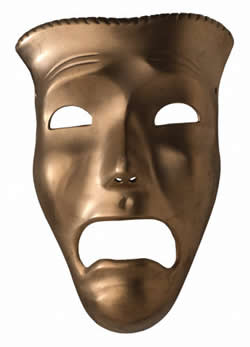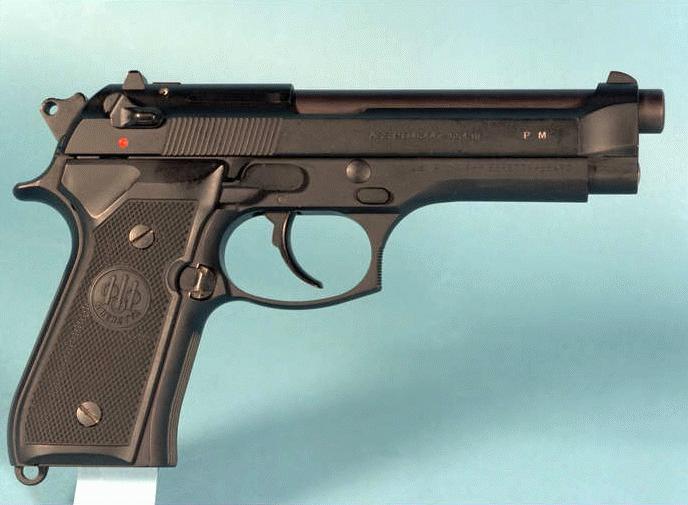Un-Tragic Un-Hero

It's not for me to go over the details of the bloodbath at Virginia Tech, nor to draw a lot of deep meaningful conclusions. I wasn't there, and the analysis has all been done quite well elsewhere anyway. Certainly in this day and age, when the Virginia Tech coverage has yet to match the frenzy that greeted Anna Nicole Smith's death, there's no need for me to get into it in any factual way.
This post responds to a comment I heard on television while I was browsing the magazines in a local convenience store this afternoon. Someone referred to the events at Virginia Tech as a "tragedy".
Here's how the American Heritage Dictionary of the English Language defines "tragedy":
A drama or literary work in which the main character is brought to ruin or suffers extreme sorrow, especially as a consequence of a tragic flaw, moral weakness, or inability to cope with unfavorable circumstances.
Implicit in that definition is the notion that the tragic hero has one tragic flaw in an otherwise upright and admirable character. A famous example concerns Oedipus the King, ruler of Thebes, a man of great gifts, enormous courage and wisdom, and overweening pride in himself. Not only does he have a flaw, it's that very flaw that brings him to ruin; because he's proud, he ignores the warnings of the gods, and thus loses his family, his home, his country and his eyesight.
 Notice the point. In tragedy, an admirable person not only suffers from one particular bad characteristic, but suffers a downfall through the operation of that very characteristic. If someone comes to grief through no fault of his/her own, it can be sad, but not tragic.
Notice the point. In tragedy, an admirable person not only suffers from one particular bad characteristic, but suffers a downfall through the operation of that very characteristic. If someone comes to grief through no fault of his/her own, it can be sad, but not tragic.Few people today bother about such niceties, but this guy Cho was a student of literature in some sense, and probably knew something about tragedy's literal meaning. Furthermore, given his video suicide note, it's pretty clear he wanted to think of himself in a grand way.
That's why this post. I'm a literature major myself, and a teacher, and I say words have power; I won't watch them being devalued, especially at a time like this. I'd like to make it clear that Cho was not a tragic hero, and calling his actions a tragedy pushes them to a level they can't sustain. It's not fair to those who struggle against destiny without shooting anyone, and it's not fair to the innocent people he shot.
Did Cho have virtues? I assume so - at the very least he could write plays that reached his classmates, even if it was only to creep them out. Other than that, he seems to have been antisocial in the extreme, completely incapable of relating to others or even acknowledging their reality. He lacked self-knowledge and the willingness to address his problems in any meaningful way. He took no responsibility for himself; his last statement was one of accusation against everyone he was about to murder, blaming them for their own deaths. (Full disclosure: I was a similar wet blanket during my first year of college, which may be why this gets me so steamed. The first year of college is tough for a lot of people, most of whom don't murder several humans in response.)
 In short, he was not an admirable person with a tragic flaw, he was a pitiful clown with a couple of guns. The dreadful irony of this incident is that so many people (good people or otherwise) died at the hands of such a profoundly small man. He wasn't even an anti-hero; he was a loser.
In short, he was not an admirable person with a tragic flaw, he was a pitiful clown with a couple of guns. The dreadful irony of this incident is that so many people (good people or otherwise) died at the hands of such a profoundly small man. He wasn't even an anti-hero; he was a loser.Little Miss has compassion for Cho, as well as his victims. For the past few days she's been wondering what on earth he could have gone through to drive him to such a state. She's a better person than I am, folks.
Benshlomo says, In tragedy there is nobility - in mass murder there is none.

0 Comments:
Post a Comment
<< Home